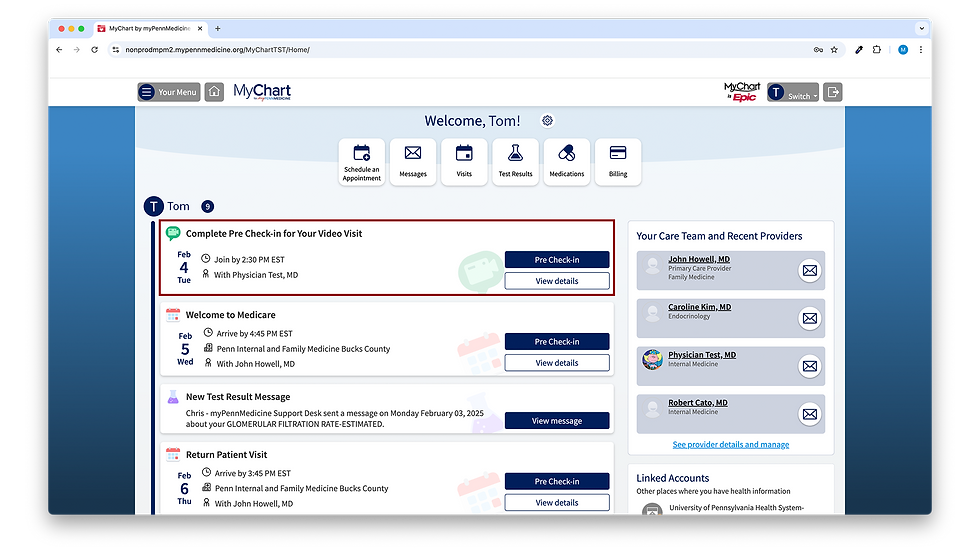How Technology is Transforming the Future of Healthcare
- Kat Usop

- Jun 17
- 3 min read
In recent years, technology has made significant strides in the healthcare sector. These innovations are reshaping how we approach health and wellness. From telemedicine to wearable devices, the integration of technology in healthcare is making services more accessible and efficient. This blog post explores various ways technology is transforming healthcare and what the future may hold.
The Impact of Healthcare Technology on Patient Care
Healthcare technology is enabling healthcare providers to enhance patient care. Telemedicine is one of the most significant advancements in this area. It allows patients to consult with doctors remotely, reducing the need for in-person visits. This is particularly beneficial for individuals in rural areas where access to medical facilities can be limited.
For example, a study found that telehealth services have increased by as much as 500% since the pandemic began. Patients can schedule appointments from the comfort of their homes, ensuring they receive timely medical advice without the added stress of travel.

Moreover, this shift to virtual healthcare is not just convenient but also cost-effective. By minimizing overhead costs associated with traditional in-person visits, healthcare providers can offer lower fees for consultations.
Enhancing Diagnostics with Advanced Technologies
Another transformative element of healthcare technology is the use of advanced diagnostic tools. Artificial Intelligence (AI) and machine learning models help physicians make more accurate diagnoses. For instance, AI algorithms can analyze medical imaging faster and often more accurately than human radiologists.
One case study showed that an AI system was able to detect certain cancers with up to 94% accuracy. This has profound implications for early detection, ensuring patients receive the right treatment sooner.

These advancements aren't just limited to radiology. AI is also being integrated into pathology, genomics, and even outpatient monitoring, thereby broadening the scope of preventative care.
The Rise of Wearable Health Devices
As technology advances, so does the market for wearable health devices. Products like smartwatches and fitness trackers allow users to monitor vital signs such as heart rate, sleep patterns, and physical activity levels.
Statistics reveal that 27% of adults in the U.S. now use wearable health technology. These devices empower individuals to take proactive steps for their health and well-being. Having access to real-time data means that patients can provide more accurate information to their healthcare providers, leading to better diagnoses and personalized treatment plans.

Additionally, healthcare providers can use this data to track patients remotely, allowing for continuous monitoring. This is especially critical for patients with chronic conditions, who can benefit from real-time feedback and timely interventions.
The Role of Data Analytics in Healthcare
Data analytics plays a crucial role in healthcare technology by enhancing decision-making processes. With large datasets being generated from various sources, healthcare providers can analyze trends and outcomes to improve service delivery.
Predictive analytics, for example, can identify at-risk populations based on historical data. By targeting these individuals with preventative measures, the healthcare system can effectively reduce the incidence of chronic diseases.
Furthermore, healthcare institutions can use data to streamline operations, reduce waste, and improve patient experiences. According to the Healthcare Information and Management Systems Society, organizations using data analytics reported a 15% reduction in readmission rates, significantly benefiting both patients and providers.
Future Perspectives: A Patient-Centric Approach
Looking to the future, healthcare technology may emphasize a more patient-centric approach. Innovations in personalized medicine and treatment methods are on the rise. Personalized medicine tailors treatment plans to individual patients based on their genetic makeup and lifestyle factors.
Moreover, as the healthcare ecosystem continues to evolve, technology like blockchain could revolutionize how patient data is stored and shared. This could create a more secure and transparent system, thereby increasing patient trust and confidence.
While challenges remain, such as data privacy concerns and the need for infrastructure improvements, the potential for digital health innovation is immense.
Embracing a Technological Future in Healthcare
To sum up, technology has transformed healthcare in numerous ways, enhancing the quality and accessibility of care. From telemedicine and AI diagnostics to wearable devices and data analytics, these advancements are paving the way for a better healthcare experience for both patients and providers.
As we progress further into the digital age, it becomes essential for healthcare professionals to embrace these technologies. By doing so, they can create a future where everyone has access to quality healthcare, leading to healthier communities and superior health outcomes.
Whether you're a patient or a healthcare provider, staying informed about technological advancements in healthcare is vital. The future of healthcare is bright, and technology is leading the charge towards better health for all.


Comments